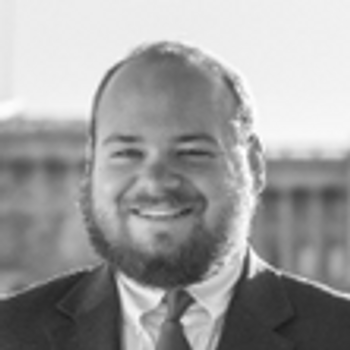Wisconsin to create Black Cultural Center 'safe space'
The University of Wisconsin is working on building a new “safe space” for black students this semester, The Badger Herald reports.
This safe space, a Black Cultural Center, is part of an 18-point plan to help foster diversity on the campus that also includes a weekly email to freshmen about inclusion and diversity, increases the capacity of ethnic studies programs, and hires three new staffers for “under-served student groups” and one who “specializes in the needs of students of color.”
Their plan also encourages raising awareness of the university’s bias incident resources, which allow students to report bias incidents.
Bias can be a “single [act] or multiple acts toward an individual, group, or their property that have a negative impact and that one could reasonably conclude are based upon actual or perceived age, race, color, creed, religion, gender identity or expression,” and a list of many other things, according to the university’s website.
“I think it’s great to be able to celebrate that community in a dedicated space that will bring positive things,” Willie Ney, executive director at the Office of Multicultural Arts Initiatives, told The Badger Herald.
“I think [the center] is a great conduit for opportunities to highlight a community that has been so marginalized and victimized,” he continued.
Not everyone was so positive, however.
Donald Downs, a UW professor of political science, said building safe spaces will lead to students being overly sensitive to vibrant discourse.
Downs’ scholarship has dealt with many issues, including freedom of speech, academic freedom, and American politics. He has written the books including Cornell `69: Liberalism and the Crisis of the American University and Restoring Free Speech and Liberty on Campus, according to UW’s website.
“If the [students there] end up saying ‘we have our own theories, our own beliefs, and it’s up to you to agree with us and not think for yourself and not challenge us,’ then that would be bad,” Downs said.
Downs further believes the building of safe spaces can stifle free speech on campuses, arguing that it is, “a fundamental principle for freedom of speech that offense alone cannot be ground for saying ‘you shouldn’t say that’ or ‘you can’t say that.'”
Chancellor of UW Rebecca Black, however, does not see safe spaces as something the conflicts with free speech.
“I don’t think that there is a dichotomy between being … an effectively diverse and inclusive community and also being a community that protects and encourages free speech,” Blank said.
Downs said a safe space may, however, unintentionally reinforce the belief that they ought to remain separate and that the entire university is racist against them, according to the article.
Ney told Campus Reform that the safe space is just meant to be a place to celebrate historically marginalized groups. He said it does not have to be something that is exclusive or something that stifles free speech.
The specifics of the safe space have not even come out yet, he said, adding that if there are events resulting in exclusivity or suppressing dialogue, then that would be the time to look at it and talk about it.
Downs, however, told Campus Reform via email that the problem exists within the very concept of a “safe space.”
“The notion of a ‘private sphere’ where one could go to simply get away from the pressures of public life” is reasonable, but that is not what modern safe spaces have become, he said.
There are two fundamental problems with the modern concept of the safe space, Downs said.
One problem is the thought that one should be safe from ideas and thoughts in general. The second problem is that providing these types of safe spaces treats people as though they are “vulnerable and victims, rather than as individuals able to deal constructively with the rigors of constitutional citizenship,” he said.
Downs believes that students can have a space where they can retreat from rigorous college life, but when it turns into the censorship of speech, it becomes a problem.
“A university is supposed to be a place where you are exposed and challenged to hear and consider a wide diversity of viewpoints, and in which you are supposed to be made intellectually uncomfortable,” Downs said.
Safe spaces have become something of a recent trend on college campuses; however, there have also been universities that have rejected the concept.
Just last month, the University of Chicago issued a letter to incoming freshmen telling them that the university will not brook safe spaces.
"Our commitment to academic freedom means that we do not support so-called 'trigger warnings,' we do not cancel invited speakers because their topics might prove controversial, and we do not condone the creation of intellectual 'safe spaces' where individuals can retreat from ideas and perspectives at odds with their own," the letter said.
Follow the author of this article on Twitter: @TylerArnold18

